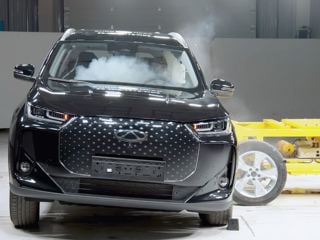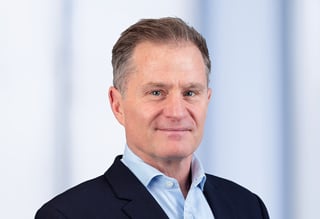Author: Author: David Bailey (pictured), professor of industrial strategy at Aston University Business School
"Electric vehicle (EV) sales continue to disappoint.
Partly that was due to huge over-hyping early on. Indeed, the first genuinely viable cars are only now here in the form of the BMW i3, Nissan Leaf 2 and Tesla Model S, and take up of those has actually been on a par with the first hybrids, so I’m a bit more positive that EVs will have some role to play in future urban mobility.
Renault-Nissan placed more bets on EVs than any mainstream auto maker, pledging in 2009 to invest some €4 billion in building models such as the Nissan Leaf and as many as 500,000 batteries per year to power them.
But Renault has shifted just 4200 electric Zoe's so far this year, massively below management’s initial hopes.
Things are only really happening on a big scale in Norway thanks to substantial government support.
Consultants IHI recently said that by 2020 electric cars will still account for under 1% of the total vehicle market. Hence little interest at the latest car shows.
Renault-Nissan’s CEO Carlos Ghosn said last year that sales in electric vehicles were at least four years behind targets, and he blamed this on the slow rollout of support infrastructure.
That may play a part, but I reckon that range needs to double and prices halve before this really becomes a serious goer outside of urban areas. And I say that as a committed EV driver (I enjoy driving a Leaf).
This all leaves Renault in a bit of a pickle on the EV front given its big investment in this area - Ghosn had previously predicted that EVs would have a 10% market share by 2020.
Renault has already taken a hit in the form of at least one €85m writedown on its EV investment following the collapse of BetterPlace - a battery swap startup that had ordered 100,000 Fluence EVs before it went bust.
Hence the most recent tie up between Renault-Nissan and Bolloré in terms of developing a EU electric car-sharing scheme. It’s a small scale joint venture (JV) but potentially hugely significant.
Under the deal, Renault will produce Bolloré’s BlueCar at its Dieppe factory while Bolloré will include Renault’s Zoé and Twizy EVs – and maybe the Nissan Leaf - in the car-sharing schemes it runs in several European cities.
The two will also undertake a feasibility study on the possibility of Renault making a new three-seater electric vehicle using batteries made by Bolloré.
The latter may allow Renault to hedge its bets on battery technology, as Bolloré holds patents on key technologies for solid lithium-metal polymer batteries. It makes them in Brittany and Canada.
Meanwhile, Renault-Nissan currently use liquid lithium-ion batteries.
Nissan currently makes them at its Sunderland plant and officially remains committed to this.
But there is speculation that it is considering stopping this and retrenching battery production back to Japan. The firm is already negotiating with NEC on a possible shift to dual sourcing.
One possibility being explored could see LG (which supplies batteries for some Renault models) investing in battery production at one of the Nissan battery plants if the latter ceases production.
At the moment there are around 750 Bolloré Blucars in operation in its AutoLib’car sharing scheme in Paris. The scheme allows users to rent EVs from stations in Paris and across 46 surrounding municipalities.
After success in Paris, similar EV-sharing schemes were set up; Bluely in Lyon-Villeurbanne in October 2013, Bluecub in Bordeaux in November 2013 and Blueindy in Indianapolis (United States) earlier this year.
You could easily imagine 10,000 a year being used in an EU-wide scheme as car-sharing schemes are set up across European cities.
Add this to Renault-Nissan's existing EV sales and you may see something approaching the minimum scale needed to keep the whole thing afloat.
And with a possible tie-up between Tesla and BMW in the offing, you can start to see the big players beginning to coalesce around what will may be for now an ultra-niche market but one that might just be sustainable in urban environments.
Bolloré has been quietly but effectively pushing its BlueCar project.
The car itself was designed by Pininfarina, with car sharing schemes already running in Paris, Lyon and Bordeaux, with London seen as a future target.
The JV will enable Renault to offer its EVs via the car-sharing scheme and in so doing demonstrate their usefulness.
Meanwhile the build quality of the BlueCar can be improved. In addition, the JV has more muscle to market car sharing plans to other cities in Europe and around the world – think of Singapore for example.
If car-sharing takes off in our congested cities, the new joint venture could be well placed. Of course, though, in the short run we still have the same problem; a new technology with high costs which has yet to make the big break-through."



















Thomas I. Anderson - 09/10/2014 12:11
Some suburban communities could use a car-share service. There has been one in Findhorn, Scotland for circa two years. Nearby, Forres town operates EV recharging services. I'm hoping to use a Nissan e-NV200 van soon. Andy, Forres. 9 OCT 14.